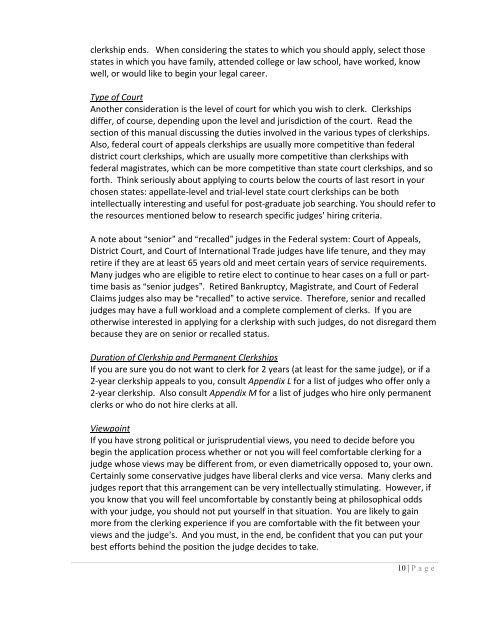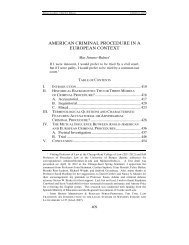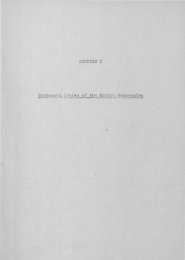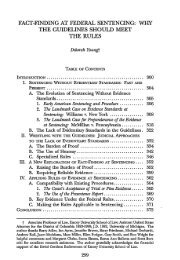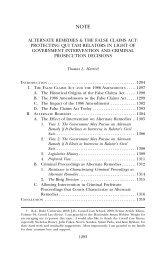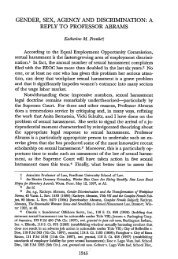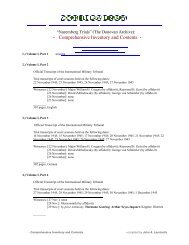JUDICIAL CLERKSHIP HANDBOOK - Cornell University Law School
JUDICIAL CLERKSHIP HANDBOOK - Cornell University Law School
JUDICIAL CLERKSHIP HANDBOOK - Cornell University Law School
You also want an ePaper? Increase the reach of your titles
YUMPU automatically turns print PDFs into web optimized ePapers that Google loves.
clerkship ends. When considering the states to which you should apply, select those<br />
states in which you have family, attended college or law school, have worked, know<br />
well, or would like to begin your legal career.<br />
Type of Court<br />
Another consideration is the level of court for which you wish to clerk. Clerkships<br />
differ, of course, depending upon the level and jurisdiction of the court. Read the<br />
section of this manual discussing the duties involved in the various types of clerkships.<br />
Also, federal court of appeals clerkships are usually more competitive than federal<br />
district court clerkships, which are usually more competitive than clerkships with<br />
federal magistrates, which can be more competitive than state court clerkships, and so<br />
forth. Think seriously about applying to courts below the courts of last resort in your<br />
chosen states: appellate‐level and trial‐level state court clerkships can be both<br />
intellectually interesting and useful for post‐graduate job searching. You should refer to<br />
the resources mentioned below to research specific judges= hiring criteria.<br />
A note about Asenior@ and Arecalled@ judges in the Federal system: Court of Appeals,<br />
District Court, and Court of International Trade judges have life tenure, and they may<br />
retire if they are at least 65 years old and meet certain years of service requirements.<br />
Many judges who are eligible to retire elect to continue to hear cases on a full or part‐<br />
time basis as Asenior judges@. Retired Bankruptcy, Magistrate, and Court of Federal<br />
Claims judges also may be Arecalled@ to active service. Therefore, senior and recalled<br />
judges may have a full workload and a complete complement of clerks. If you are<br />
otherwise interested in applying for a clerkship with such judges, do not disregard them<br />
because they are on senior or recalled status.<br />
Duration of Clerkship and Permanent Clerkships<br />
If you are sure you do not want to clerk for 2 years (at least for the same judge), or if a<br />
2‐year clerkship appeals to you, consult Appendix L for a list of judges who offer only a<br />
2‐year clerkship. Also consult Appendix M for a list of judges who hire only permanent<br />
clerks or who do not hire clerks at all.<br />
Viewpoint<br />
If you have strong political or jurisprudential views, you need to decide before you<br />
begin the application process whether or not you will feel comfortable clerking for a<br />
judge whose views may be different from, or even diametrically opposed to, your own.<br />
Certainly some conservative judges have liberal clerks and vice versa. Many clerks and<br />
judges report that this arrangement can be very intellectually stimulating. However, if<br />
you know that you will feel uncomfortable by constantly being at philosophical odds<br />
with your judge, you should not put yourself in that situation. You are likely to gain<br />
more from the clerking experience if you are comfortable with the fit between your<br />
views and the judge=s. And you must, in the end, be confident that you can put your<br />
best efforts behind the position the judge decides to take.<br />
10 | P age


